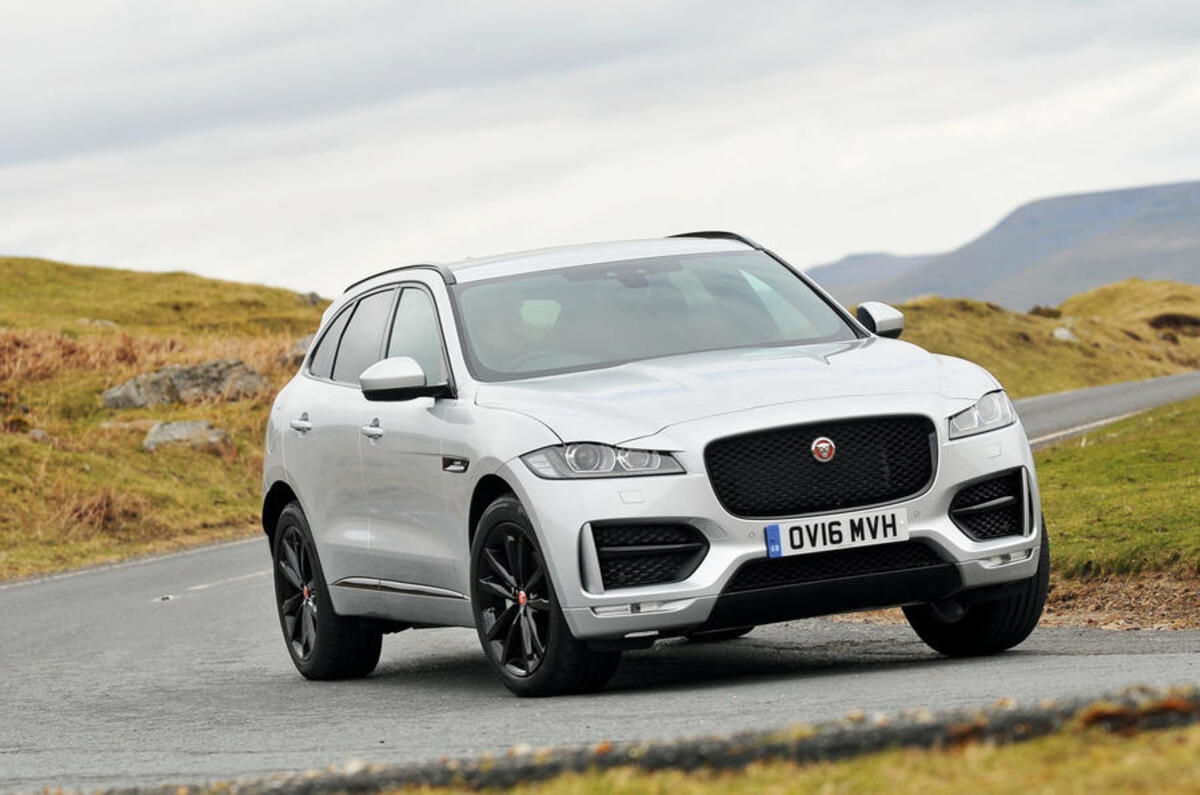Car buyers are being confused and misled by debates that label all diesel cars as dirty, according to Jaguar Land Rover’s UK managing director Jeremy Hicks.
In response to mounting media and governmental debate around the future of diesel-powered cars, JLR commissioned a study of public knowledge and attitudes on the fuel. It concluded that the car-buying public didn’t know the facts about latest generation diesel engines or wider issues around pollution.
Autocar survey: diesel sales set to slump due to pollution fears
“Half of car drivers think that road transport is most responsible for urban pollution. That is not true,” said Hicks. “For example, commercial and household properties produce more than half of the particulates polluting our cities.
“More than half of drivers don’t know what Euro 6 standards means. Almost a third don’t know whether the Co2 emissions we want to curb should be attributed to petrol or diesel engines. It is the same when it comes to Nox.”
Hicks said that buyers choosing between petrol and diesel cars had to understand the impact of their decisions: “You can choose diesel to help fight global warming or petrol for better air quality. The government encouraged it [diesel]... to ensure the automotive industry played its part in preventing global warming. It is why we have cut tailpipe emissions by 32% in the last decade.”
Diesel engines: your questions answered
Hicks also argued that headlines and arguments that “demonize diesel” “do not actually address the problem we are trying to solve, highlighting the fact that the Euro 6 compliant engines that are sold in all new cars today are substantially cleaner than previous iterations.
“There has been a seismic shift in diesel technology, almost eliminating NOx. Nobody is trying to ban Euro 6 engines in London, or Stuttgart or other cities looking to cut pollution to be fair, but the impression is being given that all diesels are the same - and it causes confusion and creates false impressions.
“Here is the truth: if you care about air quality in our cities there is nothing wrong with buying a modern diesel car.”
Backing his argument, Hicks explained that particulate emissions from diesel engines had been reduced by 95% in the past decade as a result of the introduction of particulate filters. He also highlighted that a cow emits as much CO2 in a year as a petrol car driving 8000 miles and that omestic wood burners accounted for 17% of PM2.5 particulates in 2013 and road transport 18%.
“I don’t want to stereotype but I can imagine a well-intentioned person deciding against buying a diesel car for environmental reasons as they sling another long onto the wood-burning stove thinking they are returning to nature,” said Hicks. “If air quality is going to improve our vision has to be broader and our focus sharper than just the private motorist.”
Hicks added that the car industry should be seen as part of the solution, as it was investing billions of pounds in developing new, cleaner means of personal transport - money generated through the sales of today’s cars.
“Those sales provide the resource we use to invest in developing new powertrains,” said Hicks. “We are moving to a mobility revolution and it would be tragic for our environment if those developments were delayed because of the negative impact a mishandled, misinformed ‘diesel debate’ had on our industry.”




Join the debate
Add your comment
I would like him to answer
1) Why when a 2017 Land Rover model (big SUVs from other manufacturers are the same) go past can you smell NOx? If you can smell NOx, then its harming you. Clearly their cars are harming people.
2) When talking about global warming do they only consider emissions from the tailpipe? Diesel emits more CO2 when being refined from oil, but this is conveniently forgotten by the car industry / government.
3) If emissions for petrol / diesels were made the same, would diesel cars be economically viable for anyone?
I would like him to answer
1) Why when a 2017 Land Rover model (big SUVs from other manufacturers are the same) go past can you smell NOx? If you can smell NOx, then its harming you. Clearly their cars are harming people.
2) When talking about global warming do they only consider emissions from the tailpipe? Diesel emits more CO2 when being refined from oil, but this is conveniently forgotten by the car industry / government.
3) If emissions for petrol / diesels were made the same, would diesel cars be economically viable for anyone?
Land Rover are absolutely right.